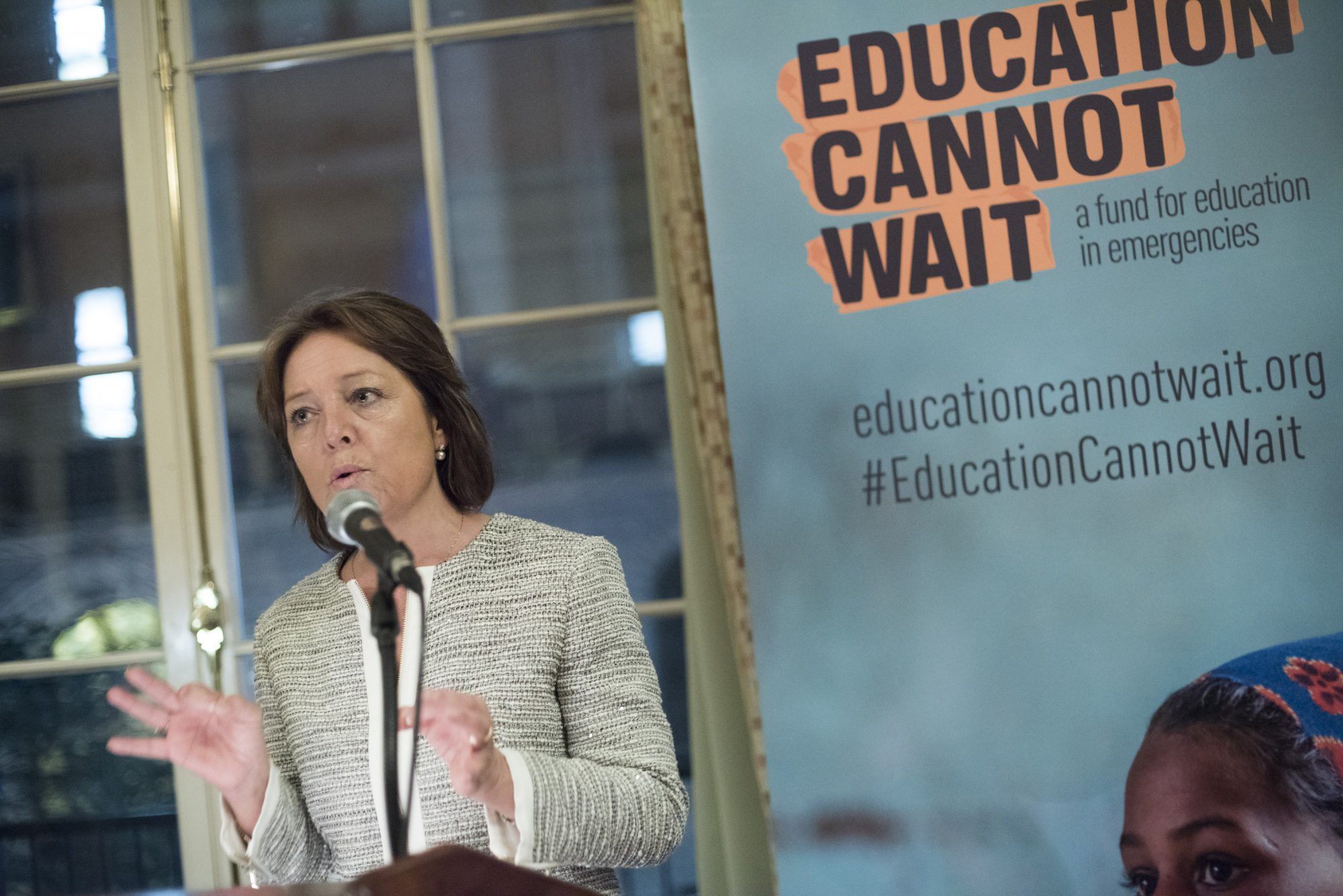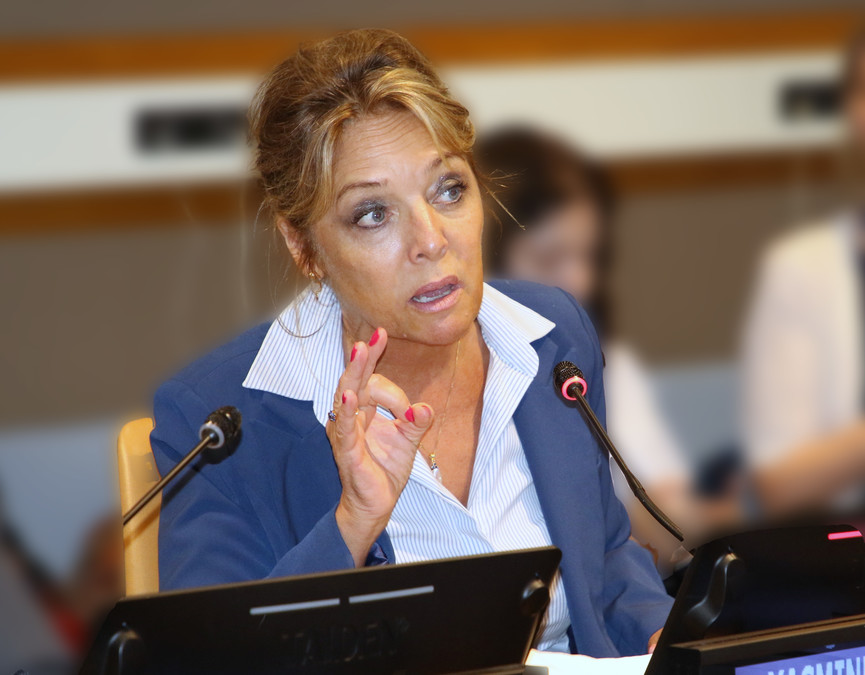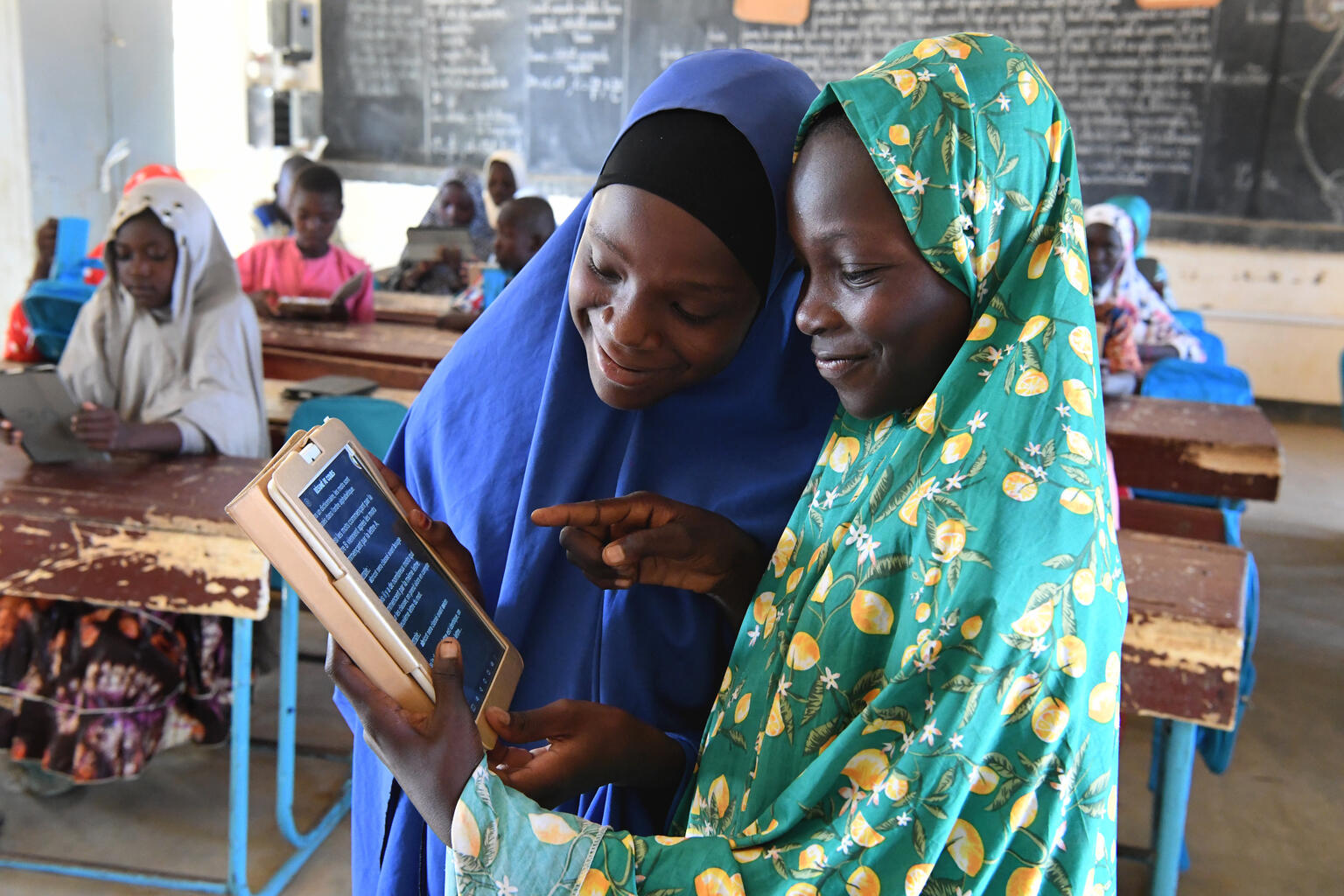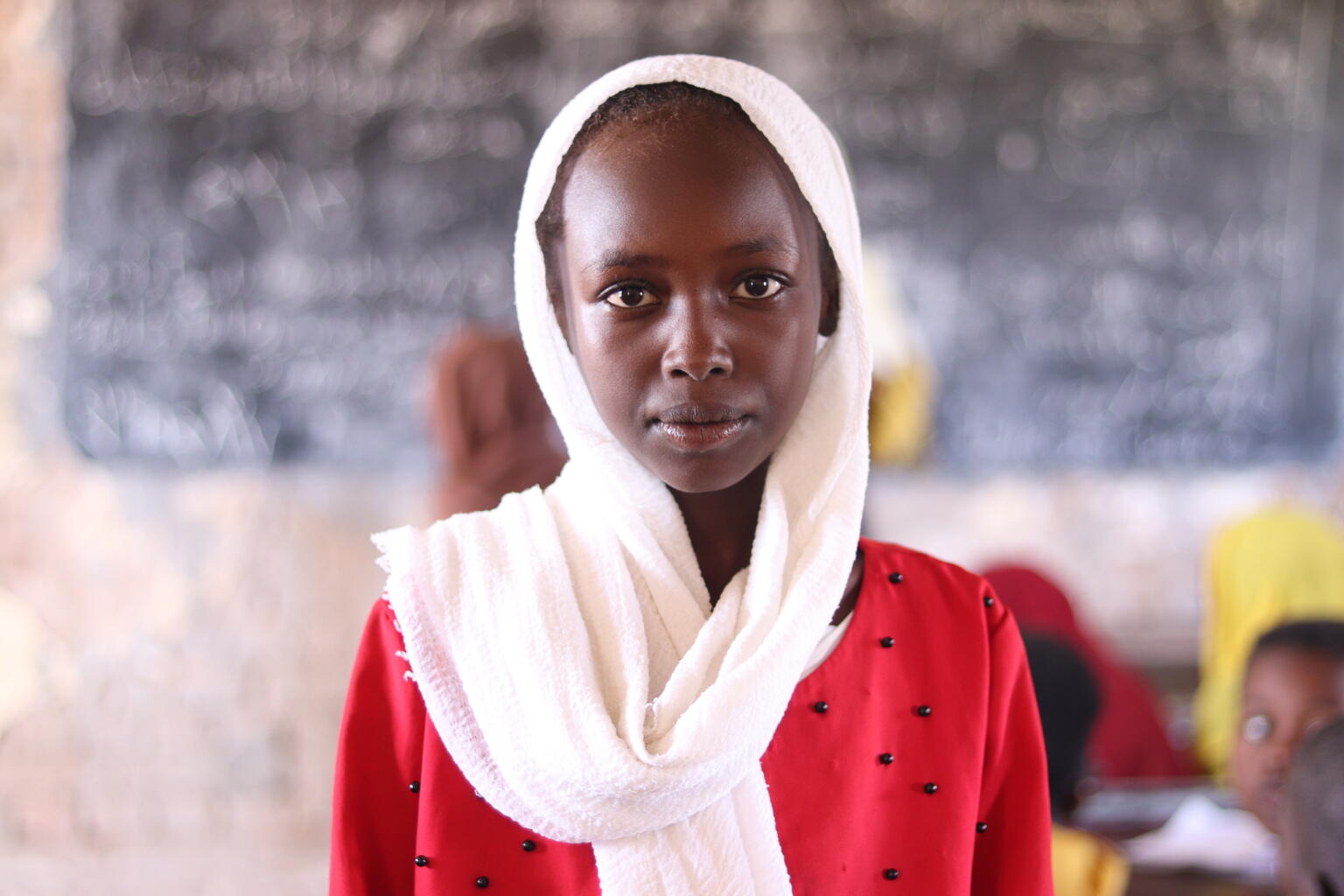Investing in Our Shared Humanity

Yasmine Sherif, Director of Education Cannot Wait- 24 September 2017
World leaders gathered at the United Nations in New York this past week. At the 72nd General Assembly, renewed calls were made for our universal values that laid the foundation for the United Nations. The 2030 Agenda for Sustainable Development was at the forefront, such as ending poverty and hunger, achieving gender-equality, and ensuring justice and peace. But how do we get there?
The High-Level event on Financing the Future: Education 2030 may be the answer. It drew renewed and heightened attention to the very foundation of all Sustainable Human Development Goals. “Investing in education is the most cost effective way to drive economic development, improve skills and opportunities for young women and men, and unlock progress on all 17 Sustainable Development Goals,” the United Nations Secretary-General, António Guterres, passed the message loud and clear.
Education, or SDG4, which encompasses early childhood, primary and secondary education, is in fact the very foundation for all aspirations of the United Nations. Without education, all else falls away and tears apart. Without education, young adolescent men are more exposed to forcible recruitments that will produce more violent extremism and conflict. Without education girls and young women are exposed to trafficking, early child marriage and repression in all shapes and forms. Besides these tragic consequences of disrupted education, war-torn countries have no professional capacity to rebuild, no skills to pursue economic development, no ability to establish gender-equality, let alone prevent another conflict.
For the 60 million internally displaced and refugee populations living in camps and host-communities in the crisis affected parts of the globe, education represents the very last hope for their societies and for their own future. It is the kind of hope that promises to end a seemingly indefinite state of suffering and disempowerment. Today, 75 million 3 to 18 years old children have their education disrupted by armed conflicts and natural disasters around the globe – from the conflicts in Afghanistan, South Sudan, Syria and Yemen to the millions of refugees in Bangladesh, Jordan, Lebanon and Uganda. And these numbers are growing: the number of people affected by natural disasters is projected to increase by 50 per cent by 2030 compared to the 2000-2015 period, while violent conflicts have increased sharply since 2011.
These millions of girls and boys in crisis have one priority above all: educating themselves out of their despair. By graduating from school they also graduate out of poverty and conflict. But if schools are not there, if learning does not take place or if poverty, violence or discrimination keeps them away from school, their last hope is erased from their life. And with that we also lose our collective hope for a peaceful and just world.
We have a moral duty and a legal obligation toward these children: young girls and boys struggling to sustain hope amidst abnormal circumstance of armed conflicts and abject poverty, their dignity permanently at threat. Failure to progress on education for children affected by crises will make achievement of the Sustainable Development Goals impossible: 63 million out of school children live in countries affected by conflict with additional out of school girls and boys affected by natural disasters. Higher out of school rates do not just mean education lost but also lower economic and health outcomes, higher child marriage and lower women’s empowerment. Furthermore, low levels of secondary education among young males are associated with higher levels of social disorder and disturbance while every additional year of education decreases the likelihood that an adolescent boy will be involved in conflict by 20 per cent.
Conversely, how can education contribute to peace? Education for children affected by crises can strengthen resilience and decrease the likelihood of further crises. This is particularly important considering that, currently, half of the countries emerging from violent conflict relapse into conflict within the next five years. Higher education levels, particularly when education supports student participation and the expression of differing opinions, tend to lead to higher civic engagement, understanding of and support for democracy and conflict resolution, participation in civic life, tolerance for people of different races or religions, concern for the environment, gender-equality and adaptation to climate change.
But we need to do education right. Where education inequality doubles, the likelihood of conflict more than doubles, while greater gender equality in education is associated with up to 37 per cent less likelihood of violent conflict. It is not just more education that matters, but also bridging the education gap between children affected by crises and others, different ethnic groups, girls and boys, and between the poor and the rich.
As the director of Education Cannot Wait – a global fund for education in emergencies and protracted crisis established by the World Humanitarian Summit in 2016 – I am committed to give voice to the 75 million children in crisis situations that desperately need us. Jointly with government partners, humanitarian and development actors, such GPE, UN agencies, the World Bank, NGOs and civil society, we strengthen political commitment, cooperation, quality, accountability and financing for education in emergencies and crisis.
During the High-Level Event: Financing for the Future: Education 2013 at the United Nations this week, partners reaffirmed their commitment through bold action for the estimated 75 million children in crisis.
The Minister of Development of the Government of Denmark, Ulla Tørnæs, stepped forward and announced an additional $16 million to Education Cannot Wait, along with the European Commissioner for Humanitarian Aid and Crisis Management, Christos Stylianides, who announced another $13 million, and the CEO of Dubai Cares, Tariq Al Gurg, who earmarked half a million US$ to the Rohingya children arriving in Bangladesh. These contributions bring much needed resources together with other committed partners of Education Cannot Wait, such as Australia, Canada, France, the Netherlands, Norway, the United Kingdom and the United States.
Education Cannot Wait is not just about any education. We focus on education that helps the young to learn, to express themselves without fear, to attain their potential and to tap into their resilience for a more peaceful and prosperous future. Education Cannot Wait is not just education for some but education for all, regardless of gender, disability, poverty, minority status or any other driver of disadvantage.
Because their education in emergencies and crisis has waited enough, Education Cannot Wait moves with humanitarian speed, development depth and determination to reach 75 million children and youth. As the United Nations Special Envoy for Global Education, Gordon Brown, so aptly states: “Education is the civil rights fight of our times. Young people are at the forefront of it.” Investing in their education means investing in our shared humanity. Theirs – and our own.




